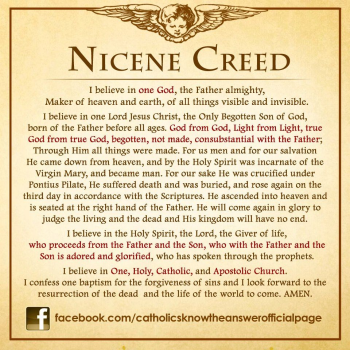Illuminator
Well-Known Member
Proof for the Scriptural nature of Purgatory can be found by comparing Luke 16:19-31 with Luke 23:43. In Luke 16, Jesus speaks of the poor man Lazarus being taken up to the "Bosom of Abraham." However, despite what is commonly presumed, this cannot be Heaven, since souls did not enter Heaven at this time (not even according to Jewish theology), but awaited Jesus' death, Resurrection, and Ascension for this.
Until the Lord opens the gates of Heaven ("I go to prepare a place for you"), it was not possible for humanity to enter into the Presence of God. Rather, the God-man needed to do this first in order to make a place for humanity before the Throne of the Father. Rather, this "Bosom of Abraham" in Luke 16 is what Jewish oral tradition refers to as "the Paradise of the Fathers" --the Garden of Eden, which was withdrawn from the earth.
Now, ... To show that this is the case, one only need to look at Luke 23:43, where Jesus tells the Good Thief, " **This day** you will be with me **in Paradise.** " Notice, here, that Jesus does not say, " ...in Heaven." ...And this is because, as we all know, Jesus did NOT go to Heaven THAT DAY. Rather, Jesus spent 3 days in the tomb!
...Not rising until Sunday morning. ...And we know from Scripture (e.g. 1 Peter 3:19 & 4:6) that Jesus' soul spent **that day** AMONG THE DEAD in Sheol. ...And, as John 20:17 hammers home for us, EVEN ON SUNDAY MORNING, Jesus had STILL "not yet ascended to the Father."
So, the "Paradise" Jesus is talking about in Luke 23 is **absolutely** not Heaven itself. Rather, He is talking about the Paradise of the Fathers, and he is promising the Good Thief (a justly-condemned Jewish criminal) that, far from being condemned to Gehenna, he will be with Abraham, Isaac, Jacob, and all the righteous patriarchs (models of Judaism) in the Paradise of the Fathers. And this would have been enough for this Jew to die in peace --saved from hell, yet not fully-sanctified so as to immediately enter Heaven.
Until the Lord opens the gates of Heaven ("I go to prepare a place for you"), it was not possible for humanity to enter into the Presence of God. Rather, the God-man needed to do this first in order to make a place for humanity before the Throne of the Father. Rather, this "Bosom of Abraham" in Luke 16 is what Jewish oral tradition refers to as "the Paradise of the Fathers" --the Garden of Eden, which was withdrawn from the earth.
Now, ... To show that this is the case, one only need to look at Luke 23:43, where Jesus tells the Good Thief, " **This day** you will be with me **in Paradise.** " Notice, here, that Jesus does not say, " ...in Heaven." ...And this is because, as we all know, Jesus did NOT go to Heaven THAT DAY. Rather, Jesus spent 3 days in the tomb!
...Not rising until Sunday morning. ...And we know from Scripture (e.g. 1 Peter 3:19 & 4:6) that Jesus' soul spent **that day** AMONG THE DEAD in Sheol. ...And, as John 20:17 hammers home for us, EVEN ON SUNDAY MORNING, Jesus had STILL "not yet ascended to the Father."
So, the "Paradise" Jesus is talking about in Luke 23 is **absolutely** not Heaven itself. Rather, He is talking about the Paradise of the Fathers, and he is promising the Good Thief (a justly-condemned Jewish criminal) that, far from being condemned to Gehenna, he will be with Abraham, Isaac, Jacob, and all the righteous patriarchs (models of Judaism) in the Paradise of the Fathers. And this would have been enough for this Jew to die in peace --saved from hell, yet not fully-sanctified so as to immediately enter Heaven.


